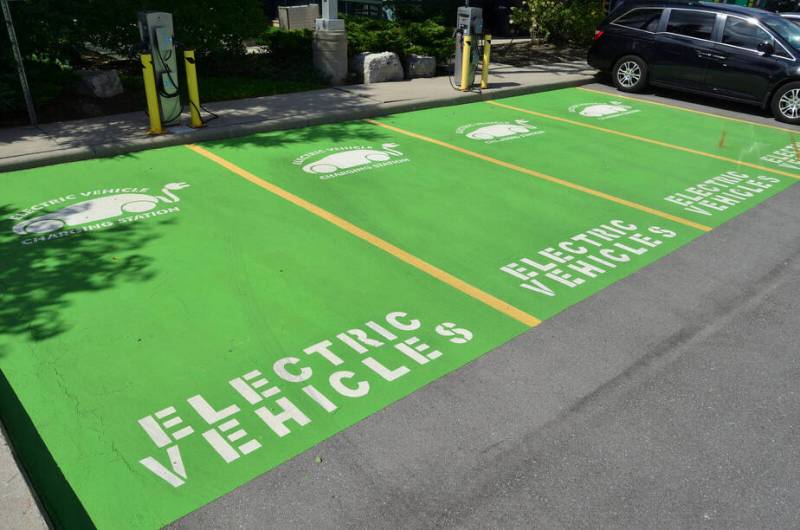AUTONEWS

The French Government surprised when it opened hostilities and announced that, from the beginning of 2024, electric cars manufactured in countries that produce electrical energy in a more polluting way – essentially at the expense of burning coal and petroleum derivatives – would no longer have access to incentives attributed to models without polluting emissions, commonly known as electric ones, whether powered by energy stored in the battery or produced on board through hydrogen fuel cells. This new regulation was immediately seen as an attempt to harm Chinese trams, removing their competitiveness, but the reality is very different.
It makes perfect sense to promote the purchase of non-polluting vehicles, which do not emit particles and NOx – both of which are carcinogenic – in the places where they drive, mainly in large cities. The FT states that, for the French Government, it is not acceptable that when promoting these electric vehicles, giving incentives for their purchase, it does not take into account the pollutant and CO2 emissions during the production period, from the raw materials and the vehicle itself, which depends on how energy is generated in the country where the factory is located. That is why France decided to make state aid for the purchase of electric vehicles dependent on the fact that the models in question have a low level of emissions during manufacturing. Now, in China, electricity is generated mainly using coal (it was 62% in 2021), so it is not easy to accept that trams produced in China are low polluting if we consider the total cycle, from production to use.
Chinese trams suffer, but so do Teslas... Proof that Macron's government did not exclusively target Chinese tram manufacturers, but rather the way in which some countries (such as China) produce their energy and vehicles , is on the list of manufacturers whose models are penalized, as they are left out of the group eligible for incentives, which in France range between €5,000 and €7,000. It is true that Chinese battery-powered cars are excluded by the new requirements for French government support, but vehicles from European and North American brands will also suffer, such as the more affordable Tesla Model 3, exported from China, while the Model Y Made in Germany is not covered, it is the best-selling EV in France. But there are more victims among non-Chinese brands, as they also produce in this Asian country. This is the case of the small Dacia Spring, the Polestar, the Smart and German models such as the BMW iX3 and the new Mini SE (electric).
The pool of candidates to be placed in “punishment” by the French tax system will continue to increase, as there are more and more Western brands intending to manufacture electric vehicles in China, to reduce production costs, as is the case with Cupra with the Tavascan, the first units of which are scheduled to roll off the Anhui assembly line, in one of the production lines that the VW Group has in partnership with local manufacturers, from where it will be exported to Europe. Interestingly, some Chinese builders – such as MG, from the state-owned SAIC group – have already started offering €4,000 discounts, to compensate for the incentives withdrawn by the Gallic Government.
If France attacks, Germany defends...In contrast to France, which decided to confront manufacturers that produce in more polluting countries, Germany not only did not adopt a similar strategy, but also saw German manufacturers putting pressure on the Government to demand that the European Union – of which it is the largest contributor – did not apply the same type of requirements to Chinese brands that China imposes on European brands that intend to market their vehicles in that Asian country.
The pressure exerted by German manufacturers against the increase in taxes on Chinese cars is due to the weight that China has in their results, representing on average 1/3 of the volume of transactions, reinforced by the ready threat on the part of Chinese leaders, to retaliate against German brands if the EU increases taxes on Asian brands, even if only by making them equivalent to those applied by the Chinese. In 2022, Audi, BMW, Mercedes and Volkswagen held only 4.8% of the Chinese electric vehicle segment, according to Reuters, still an increase compared to 2.2% in 2020. By comparison, Tesla has 12% of the same segment.
For the sake of justice, Europe could fight for the equality of taxes on vehicles entering the Union markets, compared to those applied by China, a country where vehicle imports pay between 25% and 47%, with the model being able to then bear 17% on the added value. Given this high level of Chinese taxes, imported cars pay only 10% when entering Europe, while in the USA the rates are 27.5%.
Meanwhile, the EU continues to investigate complaints of illegal subsidies from the Chinese state to its automobile industry, according to Politico, which will lead to the application of extra taxes if confirmed. It should be remembered that Bloomberg (BNEF) reported that, between 2016 and 2022, the Chinese State distributed around 26 billion dollars in subsidies to local manufacturers, with China having exported 476,000 vehicles to Europe in the first half of 2023, which represents 38% of total exports, when the Old Continent did not represent more than 2% in 2019.
Mundoquatrorodas

Nenhum comentário:
Postar um comentário